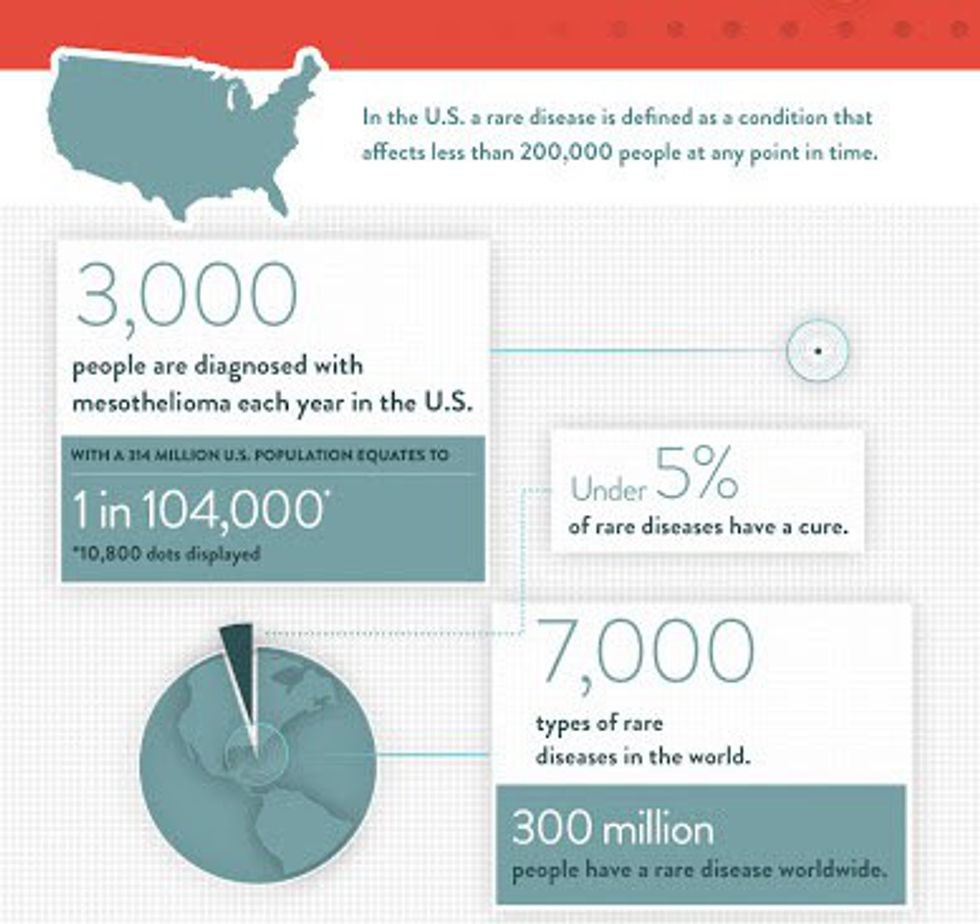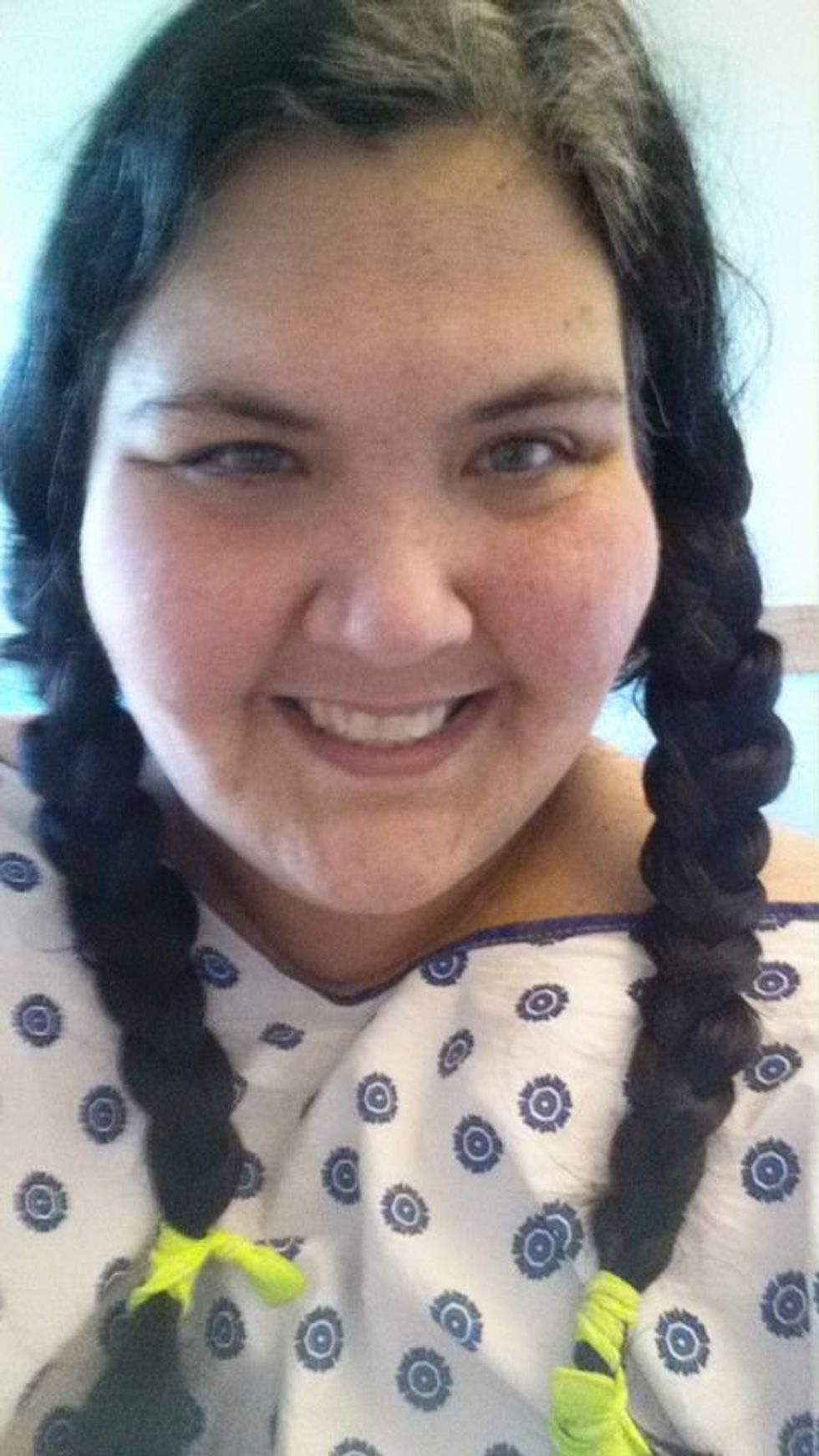February 28th is Rare Disease Day. In the United States a rare disease, as defined by the Rare disease act of 2002, is a disease that affects less than 200,000 people.
Suffering from a chronic disease is difficult but suffering from one that most doctors have only heard about in medical school brings a whole new level of complications.
In the United States, Rare Disease Day is sponsored by NORD (National Organization of Rare Disorders). They create the day to bring attention to the many rare diseases, help to educate and encourage people to share their stories so that others will know they are not alone.
I recognize Rare Disease Day because I have spent the last 12 years living with one. The rare disease that I suffer from is Hypoparathyroidism. It is estimated that there are less than 60,000 people in the United States that suffer from HPTH, which I have had since 2005. Doctors removed my overgrown thyroid and in the process destroyed my parathyroid glands. Parathyroid glands are four pea-sized glands that have a very important job.
Parathyroid glands control how your body absorbs and uses calcium among other minerals.
It is a disease that affects everyone differently. Some people who have some functioning parathyroid have to take a calcium supplement daily and they have no other problems.
I am not one of those people. I was back in the emergency room the day after I went home from the hospital. When I went to the ER the triage nurse had only heard of HPTH because her cat had it and she triaged me very low because it wasn’t a big deal for the cat. She didn’t stop to think that feline metabolic function and human function may be a tad different. It is this kind of "not knowing" that NORD is trying to stop.
My doctor had to call and basically yell and scream at the ER doctors to have them get me in sooner, though I was still in the waiting room for six long hours. By the time I was brought back to be treated every muscle in my body was cramping. If they would have waited much longer it would have affected my heart. A few bags of calcium and about twelve more hours in the ER, I was sent home with a prescription for more meds.
After twelve years with the disease, I have calcium deposits in my knees that I have to get cleaned out every year or so but it makes walking very painful. I have the beginning stages of kidney failure and muscles that just don’t work well anymore. The effects aren’t just physical either, the people that suffer from HPTH call it Brain Fog. Basically when your levels are down you shouldn’t operate heavy machinery or make decisions, for some reason your brain just isn’t functioning like it should. I have started small fires while cooking and wrecked cars when I wasn’t honest with myself about my levels and the level of brain fog.
When my calcium levels get too low the only thing I can do is head to the Emergency room for an IV drip if calcium.
The last visit to the ER I had to tell the doctors how to treat me. They looked it up to verify but I was right. I am grateful I had a doctor that freely admitted he wasn’t sure how to treat me. If he would have proceeded the way, he was heading he would have probably sent me into cardiac arrest. One thing that you learn when you are fighting any chronic disease rare or not is you have to be your own defender and if a doctor is doing something you are unsure about or don’t trust, you say something if they won't listen find a new doctor.
Hospital Selfie
That day in the ER turned into a three-day hospital stay where I was put on display for all the nurses and doctors to see, when your calcium is low (this is true for anyone, try it after you give blood sometimes) you can tap the facial nerve (between your jaw hinge and ear) and it causes your upper lip to wiggle; the lower the calcium the bigger the wiggle, it is called the Chvastec sign.
This is Merry. She doesn't have HPTH but her calcium gets low at times for other reasons and she can exhibit the Chvastec sign. You have to look close but it's there.
None of the Doctors or nurses have ever seen someone who could do it. I was quite the celebrity that trip. When you have a rare disease you soon realize that Doctors are amazing but they call it the “Practice” of medicine for a reason.
Last year the FDA approved the use of a new drug that was developed for Osteoporosis but has great potential to treat HPTH. This drug is actually a synthetic parathyroid hormone. It is actually replacing the hormone we are missing instead of treating the symptoms of not having the hormone. There are not enough people that suffer from HPTH to warrant all the trials and tests that it had to go through but thinks the work of NORD and those like them the drug was allowed by the FDA to be used in HPTH in Feb of 2015.
I have underlying issues with absorbing vitamin D so I can’t qualify for this new drug (yet) so I am still taking the only other treatment which is not an HPTH drug at all is a drug that they give in small doses to kidney patients. HPTH patients have to take three or four times the kidney patient dose, so every month when I go pick up my prescription I have to explain to the insurance why I am getting such a high dose.
There are thousands of people like me that can go most of their life without meeting another person who deals with their disease. That is why days like Rare disease day is so important. People who suffer from a rare disease will tell you that they are feeling ok just so they don’t have to explain for the 1000th time what they suffer from and how it affects them. Rare disease day gets those people to let their voice be heard and lets government know they there have to be allowances for the care of these diseases.





















